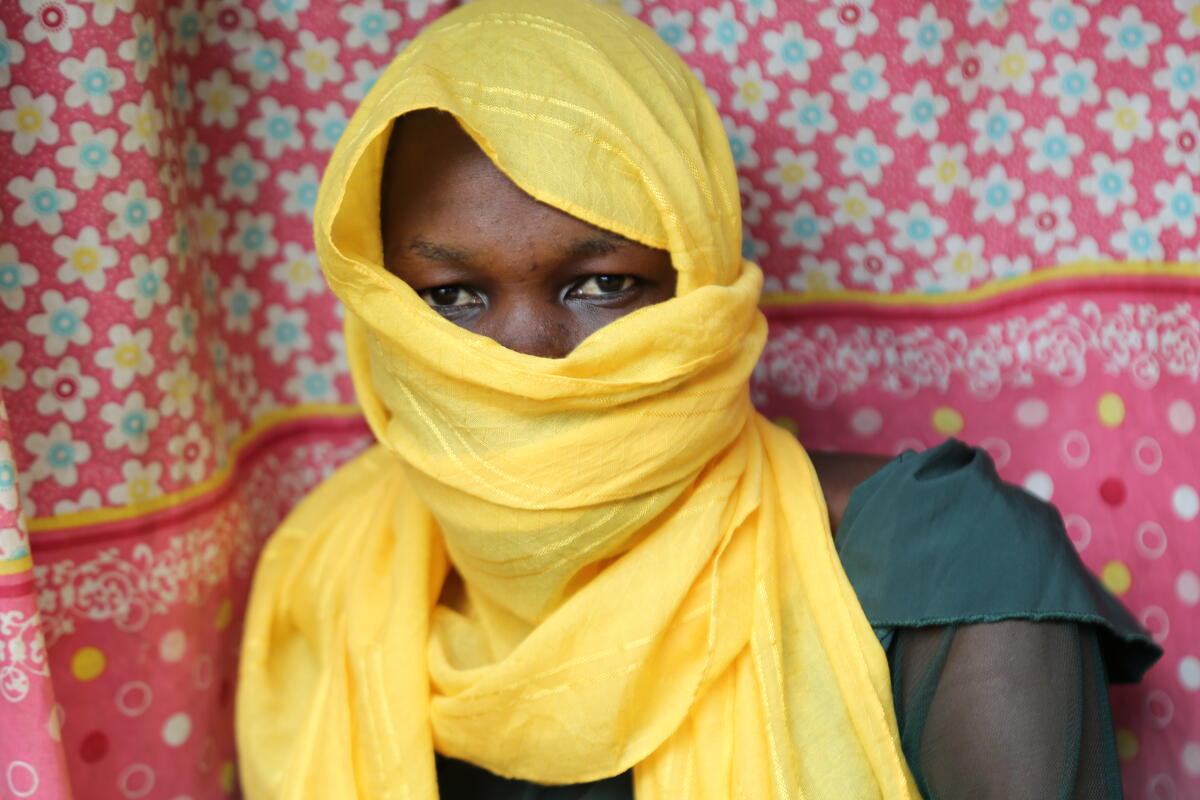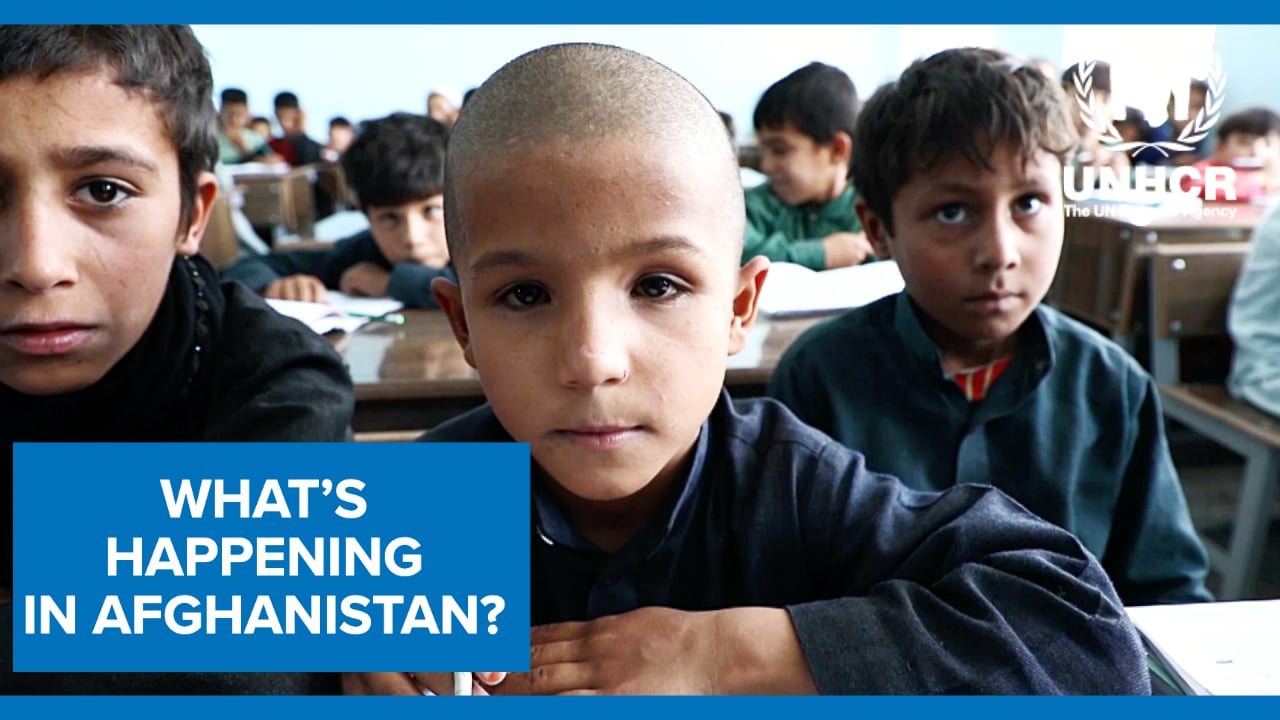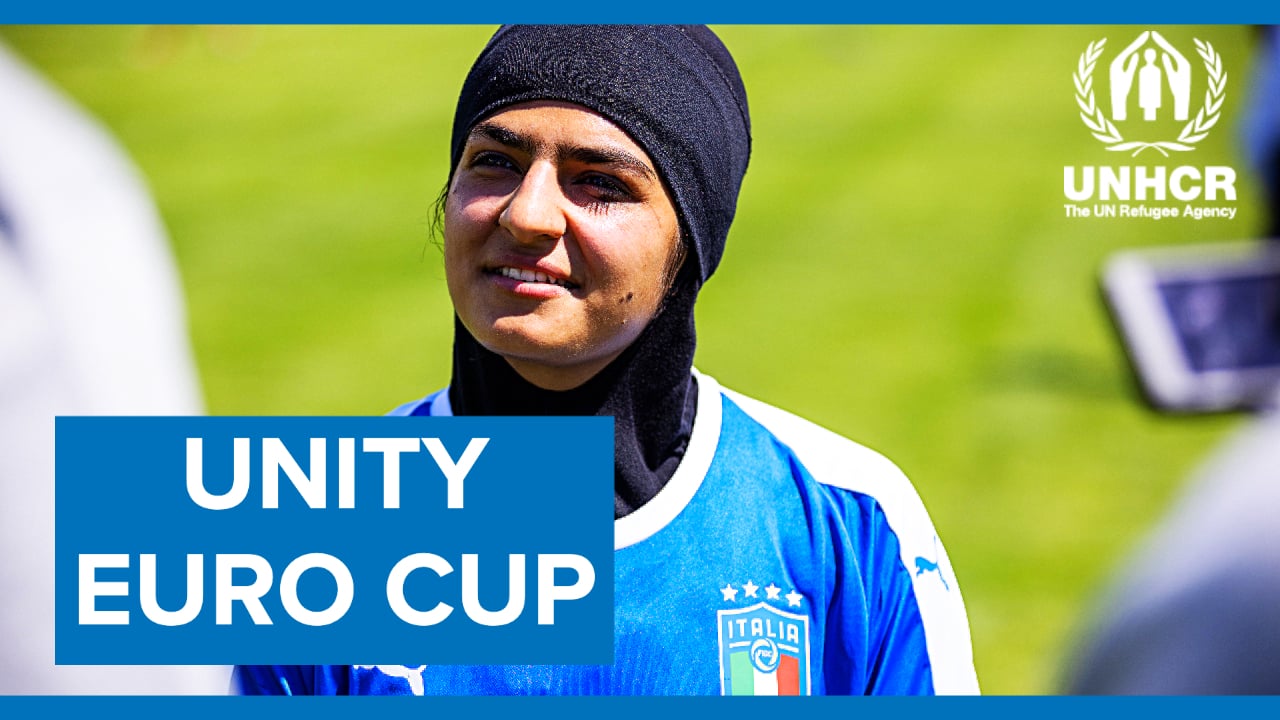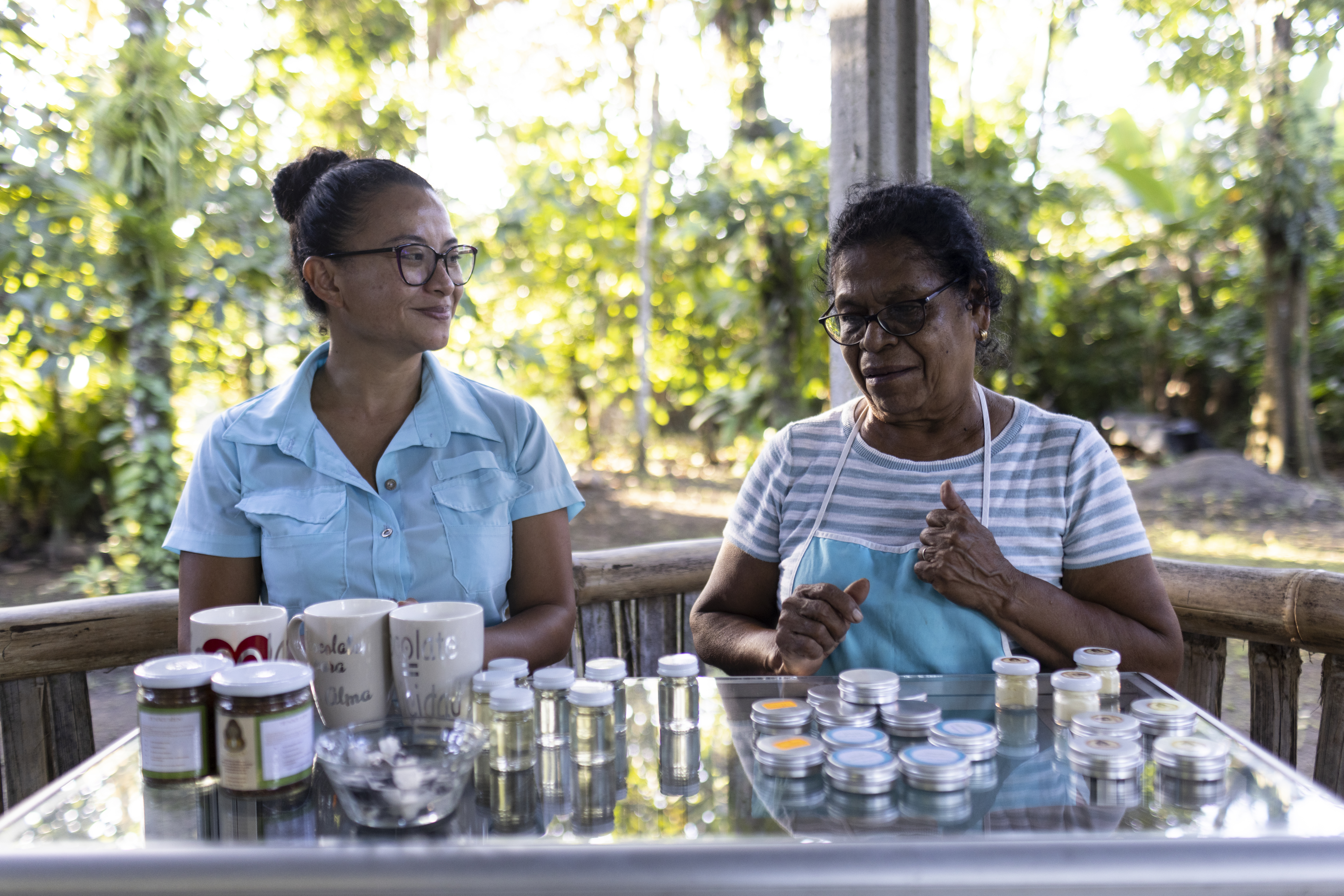South Korean charity opens a new world to two refugee women
South Korean charity opens a new world to two refugee women

Nasra (left in yellow scarf) with fellow refugee Farah and a teacher at a language school in Iksan, South Korea.
SEOUL, REPUBLIC OF KOREA, June 6 (UNHCR) - Nasra Ali Barked has survived to the ripe age of 22 because she's been able to adjust quickly to change. But now, standing in the gleaming steel and glass arrivals hall of Incheon International Airport, the young Somali refugee seems completely overwhelmed by the futuristic world confronting her.
"I hope it will be a different life here," she whispers to her travelling companion, 19-year-old Farah Suleiman Omar, as the two Somali women embark on a quest to get an education half way around the world from a refugee camp in Ethiopia where they spent the last four years.
The two have received scholarships from the Won Buddhist charitable foundation Sam-Dong International of South Korea - scholarships originally intended for a different refugee girl in Ethiopia. Her bad luck opened the door for these two to be here today.
"All we know in life is violence, destruction, bloodshed and the loss of loved ones," says Nasra, describing her homeland of Somalia. She never knew her mother because her parents divorced when she was barely a year old. Her only two siblings died in infancy. Until Nasra was seven, she lived with her paternal grandmother, who died at about the same time her father disappeared in the Somali capital, Mogadishu.
Growing up in Mogadishu was difficult for a young girl with no one to protect here. "Most girls don't go to school for fear that they may be abducted," Nasra recalls from the safety of Seoul. "Abduction of young girls was very common in Mogadishu."
At 18, she fled her war-ravaged homeland with the aunt who had taken care of her after the death of her grandmother. The two women joined some 195,000 other Somali refugees in eight refugee camps in Ethiopia, which hosts a further 125,000 refugees from Sudan, Eritrea and other countries in the region.
Last year, Eun-jong Choi, a nun in South Korea's indigenous Won Buddhist religion, visited Aw-bare refugee camp, near Jijiga in eastern Ethiopia, and made an on-the-spot decision to take another refugee girl, Rahma, to South Korea for education.
After UNHCR officials expressed concern that Rahma might feel lonely as a Somali woman on her own in Korea, the nun Choi agreed Farah should come along to keep her company.
However, before Rahma could take up the offer, she became pregnant out of wedlock, and Choi thought it best to send her money to continue her education in the camp, rather than bring her to South Korea when she was expecting.
Nasra was chosen to take up Rahma's place. "I was overwhelmed with joy when I first heard the good news," says the 11th grader. Nasra and Farah are now spending six months studying Korean language on a campus some 300 kilometres from the Korean capital, Seoul, in order to enter a regular high school.
The Won Buddhist charity has said it will support them with as much higher education as they want - either university or vocational school; opportunities they would not have had in the refugee camp. For now, all their expenses are paid, including accommodation, medical insurance, tuition, clothing and books. They also receive a stipend. Nasra says her dream is to become a gynaecologist "and help my fellow Somali women professionally."
Although Nasra and Farah did not know each other while in exile in Ethiopia, now they take comfort in being room-mates in a faraway land. "We have all day to mix with Korean students and learn the language, but the nights should be left for us to be together and speak in Somali," says Farah, resisting any efforts to split them.
Nasra cannot quite grasp her good fortune. "I still cannot believe that I'm finally here to map out a different future for myself," she says. "I plan to work hard and pursue my studies up to the highest level possible."
Before she embarks on her medical studies a few years from now, she has another goal: "I want to visit Ethiopia - because Ethiopia is my second home - to encourage my fellow refugees. I promised refugee girls that I will not forget them and I want to deliver on that promise."
By Kisut Gebre Egziabher in Seoul, Republic of Korea









